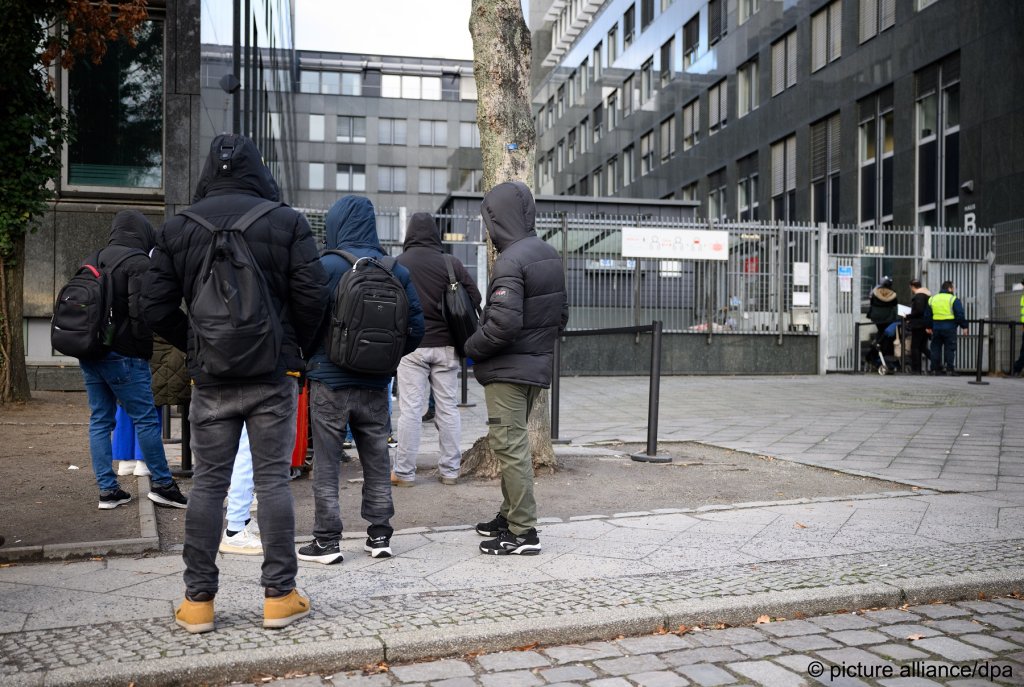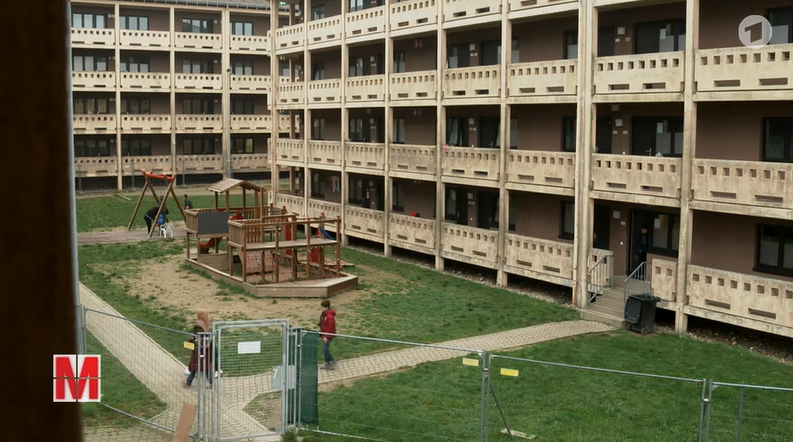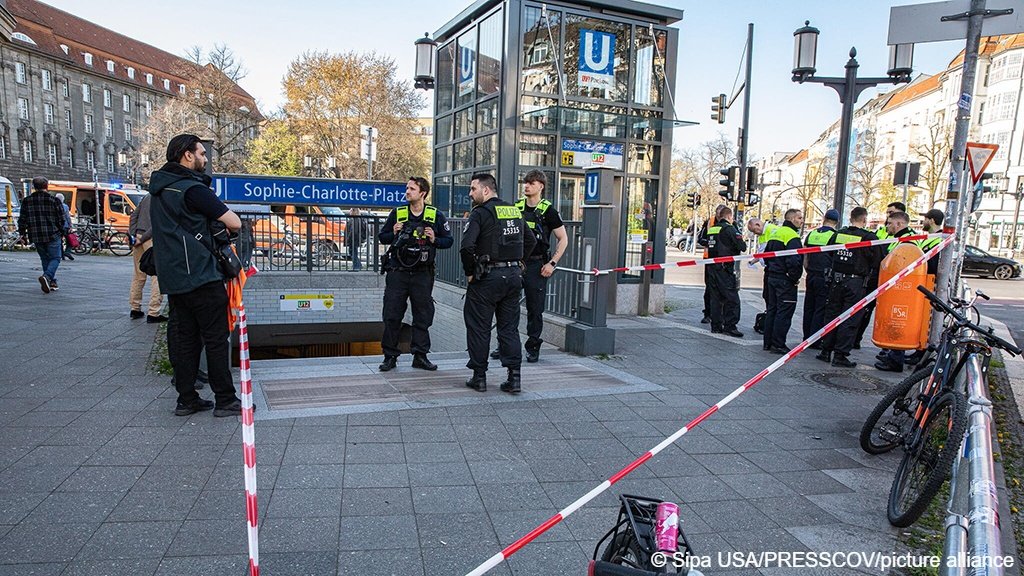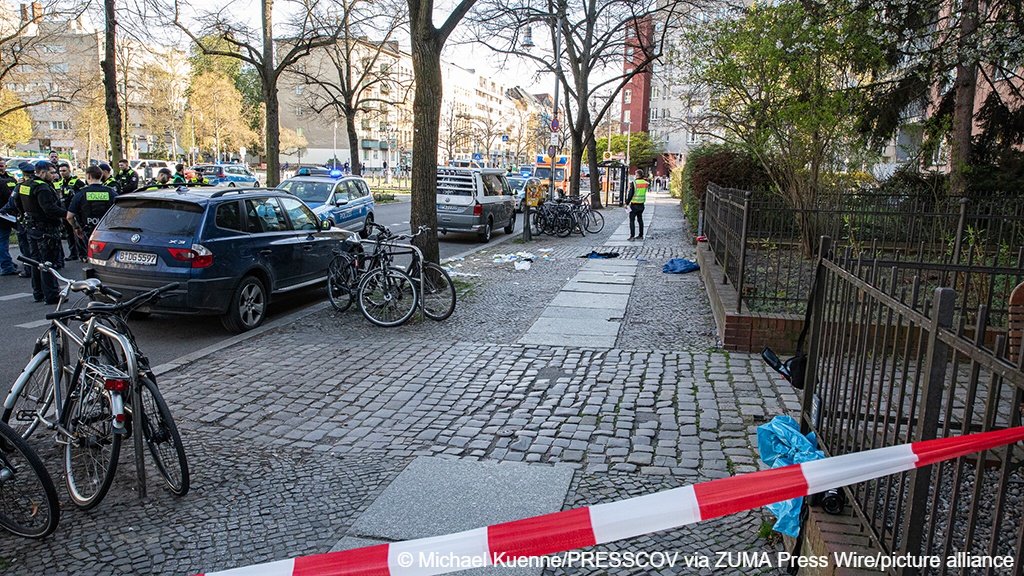In Germany's capital, according to data produced by Berlin’s authorities, the number of attacks against migrants, asylum seekers, refugees, and the properties where they live has shown a "marked increase" in 2024.
The news of an increase in attacks against migrants, refugees and asylum seekers in Germany’s capital city, Berlin, comes just after the latest knife attack perpetrated by a migrant against a German national hit the headlines. Creating an overall climate of increasing violence, anger and resentment, not just in Berlin but Germany-wide, in which migration and migrants are becoming a much-discussed and sensitive topic.
In 2024, eight attacks were reported against homes housing asylum seekers in Berlin, and there were 77 attacks on asylum seekers and refugees registered. In 2023, there were no attacks on accommodation and 32 attacks reported against migrants, asylum seekers and refugees, reported the left-leaning Berlin-based newspaper taz on April 21.
This mirrors a national trend confirmed by German Interior Ministry data, which showed that based on preliminary data, there were 218 "politically motivated" attacks on accommodation housing migrants, asylum seekers and refugees in 2024, compared to 167 cases in 2023, reported the Guardian.

Federal statistics on crime against individual asylum seekers, however, bucked that trend, showing a decline last year Germany-wide. Those figures were down to 1,905 from 2,488 in 2023.
Read AlsoGermany marks Hanau racist attack five years on
Attacks against migrants in Berlin increase
The news was released in response to a freedom of information request of the Berlin administration’s Interior Affairs body. The request was posed by Green MP Ario Ebrahimpour Mirzaie and Jian Omar, reported taz.
Compared to 2023, the number of attacks reported in Berlin has "markedly increased," Mirzaie told the newspaper. During the registered attacks in 2024, 34 people were "damaged" by the incidents, noted the Berlin authorities. 14 men, 16 women, two young female minors and two other males, whose ages were not recorded.

The authorities were able to investigate 37 suspects for attacks on the migrants, but no suspect for the attacks on the buildings was investigated.
According to Omar, the number of attacks should send out an "alarm signal." Omar is the Green Party’s spokesperson on migration and participation. "We are asking [the government] for a clear protection strategy for migrants, asylum seekers and refugees," Omar told taz.
"Police need to be more visible around accommodation that could be in danger, or has been damaged; we need more prevention work put in place, and most of all, we need policies that call out and crack down hard on right-wing-motivated violence."
Read AlsoGermany: Aschaffenburg attack prompts political blame game
Enough security provided?
The German authorities responded that they did have protection strategies in place at all accommodation buildings that housed migrants, refugees and asylum seekers and that security personnel were normally on duty 24 hours a day.
According to the taz, there are bout 35,000 refugees and asylum seekers living in accommodation in the city and about 10,000 in emergency accommodation facilities at the former airports, Tempelhof and Tegel. Facilities in these structures have in the past been criticized by human rights groups and organizations that work with migrants, asylum seekers and refugees.
Berlin’s State Office for Refugee Affairs (LAF) confirmed that in the first two months of 2025, there had been a drop in the number of arrivals to the capital. With just 1,761 people registered in January and February, marking a 35 percent decrease compared to the same period in 2024.
According to the left-leaning Guardian newspaper, most new arrivals in Berlin come originally from Vietnam, Moldova, Afghanistan, Turkey and Syria. Around the same number (1,722) of Ukrainians also arrived in Berlin during the first two months of 2025, but citizens from Ukraine are exempt from the same asylum application requirements and can come and go from Ukraine as they please.
In March, in a town not that far from Berlin, Stahnsdorf, seven rightwing extremists allegedly tried to gain entry to accommodation housing refugees. According to the Guardian, when they were confronted by a security guard at the door, they reportedly beat him, leaving him unconscious.
Witnesses also reported hearing the group allegedly chanting far-right slogans outside the building prior to the attack. Confirmed annual figures for right-wing crimes are due to be released in May this year for last year, but preliminary data suggests that 2024 saw a 17 percent increase in crimes labeled as rightwing extremist in Germany. This doesn’t just include attacks on migrants, refugees and asylum seekers.
Read AlsoBehind the statistics: Crime, migration and labor shortages in Germany
Fatal stabbing in Berlin
Last week, the German newspapers reported that a suspect, reported to be a 43-year-old Syrian national, got into a fight with a 29-year-old German national on the underground train and ended up fatally stabbing him with a kitchen knife after getting off the metro.

Eyewitnesses reportedly told the police that after the incident, the Syrian suspect ran along the streets towards the Charlottenburg castle, waving the knife in the air and weaving "as though he was on drugs." A police unit caught up with the suspect and, because of the presence of the knife, ended up opening fire and seriously wounded the suspect, who died later in hospital.
The motive for the attack and the argument between the two men remains unclear, state reports, although the two men are not thought to have known each other prior to the incident. According to a report on the news website Regional Heute.de the German police had already branded the Syrian suspect, named as Shadi S. in accordance with German law, "highly dangerous" and had passed on their intelligence to the social-psychiatric services in Berlin, who according to reports on the website "did nothing" with the information.
Read AlsoBerlin plans new mass accommodation for refugees
Prior warning?
According to a report on Die Welt newspaper, quoting the Berlin state security division (Berliner Staatsschutz), police passed on "concrete indications that the man was an 'acute danger' to both himself and others." Indications that he was also an Islamic extremist were apparently "investigated but not confirmed."
Die Welt asked Berlin officials about the case. A Pankow councilor said they’re investigating what happened to the information. In Steglitz-Zehlendorf, another official confirmed that the psycho-social services had received the information, but they hadn’t subsequently made contact with Shadi S. Neither councilor explained why that might be when questioned.

According to reports, Shadi S. already had several convictions, including grievous bodily harm, threats and resistance to police and authorities. In 2022, he had reportedly injured his sister with a knife in Chemnitz and attacked a police officer. For that, he received a suspended sentence from the regional court in Chemnitz.
Read AlsoGermany to tighten asylum laws after Solingen attack – what are the measures?
Tougher regulations under new government due
In December 2024, the state prosecutors in Chemnitz reportedly issued a withdrawal of the suspended sentence and an attempt to place the man in custody. The case came to court in Berlin in March 2025 to be heard, just weeks before this latest attack.
In response to this attack, the Berlin authorities have issued a generalized ban on weapons and knives on public transport in the city.
Germany’s new government, led by the conservative leader Friedrich Merz is due to be signed in on May 6. Although his social democratic coalition partners have tempered some of his promised migration policies, the new government has proposed suspending family reunification and coordinating with Germany’s neighbors to turn back potential asylum seekers at the borders, on the proviso that they are already in a safe EU country if they want to seek asylum.
The new government has also promised to continue work to make returns and deportations to countries like Syria and Afghanistan possible, especially if the proposed deportees are found to have committed crimes or pose a danger in Germany.
